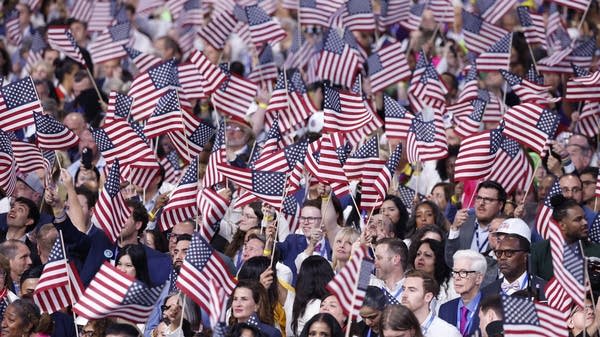Harris and her campaign likely to tap the economic power of the Divine Nine

In an election as tight as this November’s presidential vote is likely to be, voter turnout will be key. So both of the major candidates are doing everything they can to get their supporters engaged and activated.
For Vice President Kamala Harris, some of that support is coming from the historically Black fraternities and sororities, known as the Divine Nine. Harris is a member of one of them, Alpha Kappa Alpha Sorority, Inc., a group which recently launched its own political action committee.
The Divine Nine fraternities and sororities have about two and a half million members, according to R.J. Johnson, national vice president of the organizations’ umbrella group, the National Pan-Hellenic Council.
“Next to the Black church, the NPHC — the Divine Nine — is the largest single organization that has a combined group of the Black constituency,” he said.
Johnson is a member of Kappa Alpha Psi Fraternity, Inc., and also chair of the Divine Nine Votes campaign. He said that while there isn’t much formal academic research on the economic power of these groups, there should be.
“All of our organizations are college level,” said Johnson, “and so we know that usually college educated folks have a higher income than those who are not college educated. Our members are members of C-suites. They are attorneys, doctors, lawyers.”
In addition to a membership base that seems to skew higher income, Johnson also pointed out the economic contributions of the many conferences and events hosted by the various groups, which can have an economic impact on host cities ranging from millions to tens of millions of dollars.
In July, Vice President Harris spoke at Zeta Phi Beta Sorority, Inc.’s annual convention — known as their “Grand Boulé” — in Indianapolis, where she acknowledged the group’s long history of political activism.
“During the Civil Rights Movement, you marched for voting rights, economic justice and an end to segregation,” said Harris.
The Divine Nine organizations have prioritized civic engagement since their foundings beginning in the early 1900s, according to Walter Kimbrough, interim president at the historically Black Talledega College in Alabama. Kimbrough is a member of Alpha Phi Alpha Fraternity, Inc., which was founded in 1906 and is the oldest group in the Divine Nine.
“If you look at all of the key figures in the civil rights movement, 90% of them are members of these groups,” said Kimbrough. “Of course people will think of Martin Luther King, Jr., but Jesse Jackson, Ralph David Abernathy, Coretta Scott King … Even if you look at Thurgood Marshall, the first African-American on the Supreme Court, they’re all members of these groups.”
Members of these organizations tend to stay at least somewhat involved for life, and the NPHC’s R.J. Johnson said the majority of active members are alums not currently in college. In addition to community service focused on education, the organizations have long been engaged in politics.
“They’ve met in chambers with key leaders, including Presidents, to express [their] perspectives and views,” said Tamara Brown, provost of the University of Texas at Arlington and member of Delta Sigma Theta Sorority, Inc. Brown also co-edited a book on the Divine Nine. “The organizations have already been politically engaged and active in stating their position on important issues affecting the African American community.”
While the groups have traditionally focused on voter registration and turnout efforts in the Black community, since the elevation of Vice President Harris to the top of the Democratic ticket, the leadership of the Divine Nine has intensified those efforts.
The organizations are officially nonpartisan non-profits, but several have affiliated political action committees. Those PACs also say they’ve been ramping up operations as well, endorsing candidates up and down the ballot, and planning to contribute to candidates they support.
Thus far, they haven’t publicly reported giving much. According to public filings aggregated on Open Secrets, the four PACs that have filings with the Federal Election Commission report spending just over a hundred thousand dollars this cycle — all of it going to Democrats.
Walter Fields, chair of an Iota Phi Theta-affiliated political group, spoke about the PACs’ plans at a recent event focused on Black men and the 2024 election.
“[Divine Nine] political action committees … are united in the endorsement of Vice President Harris and Governor Tim Walz,” he said. “We are going to do everything conceivable as Black men to make sure Vice President Harris becomes our next President of the United States.”
These groups have more than a hundred years of experience turning out Black voters, and a deep bench of well-connected and often well-off members, who seem eager to flex their fundraising and political power.













